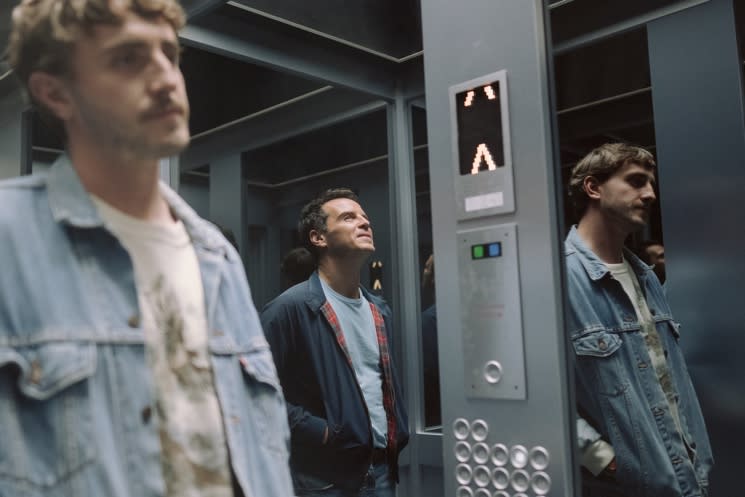Andrew Haigh's fourth feature, All of Us Strangers, is a tale often told in ellipses. It's concerned with the distinct kinds of familial and romantic love, and how those forces can shape us for decades to come.
Lonely writer Adam, played by Andrew Scott, has a chance encounter with his mysterious neighbour Harry (Paul Mescal), which upsets the comfortably sad rhythms of his daily life. While a relationship blooms between them, Adam is drawn back to his childhood home, where he encounters his dead parents looking much the same as they did 30 years ago before they died in a tragic car crash.
The film is the second adaption of the 1987 novel Strangers by Taichi Yamada (the first being The Discarnates, a Japanese horror film), with Haigh choosing to reinterpret the story through a queer lens. This has the effect of heightening its central exploration of the universal fear of loneliness and longing formed by unhappy childhoods and self-isolation.
The conversations between Adam and his parents (Claire Foy and Jamie Bell), who not only look the same but also have the same 1987 views, poignantly dramatize the dialogue many queer people have with their own families. This ghostly twist on unresolved acceptance and memories is aided by the dreamy 35 mm film stock the movie was shot on, lending its story a soft, hazy quality befitting the wistful intimacy it evokes. There's an almost intangible balancing act going on here, as All of Us Strangers simultaneously acts as a belated coming-of-age ghost story, a tender and sensual romance, and a meditation on the cost of grief and loneliness. That it manages all of this in the same minor — but far from slight — tone is a testament to Haigh and the quartet of strong performances anchoring the whole film.
Scott, Mescal, Foy and Bell create characters able to express years of history, trauma and unspoken emotion across the slightest modulations of their face, often all at the same time. There's no tortured exposition-heavy confession, no melodramatic screaming matches — but far from eliding its emotional heart, the approach consequently ratchets up the tension of each romantic and familial encounter.
It's ultimately reductive to call All of Us Strangers a tearjerker, but that's certainly part of what happens as forces compound and collide with each other throughout the film.
(Searchlight Pictures)Lonely writer Adam, played by Andrew Scott, has a chance encounter with his mysterious neighbour Harry (Paul Mescal), which upsets the comfortably sad rhythms of his daily life. While a relationship blooms between them, Adam is drawn back to his childhood home, where he encounters his dead parents looking much the same as they did 30 years ago before they died in a tragic car crash.
The film is the second adaption of the 1987 novel Strangers by Taichi Yamada (the first being The Discarnates, a Japanese horror film), with Haigh choosing to reinterpret the story through a queer lens. This has the effect of heightening its central exploration of the universal fear of loneliness and longing formed by unhappy childhoods and self-isolation.
The conversations between Adam and his parents (Claire Foy and Jamie Bell), who not only look the same but also have the same 1987 views, poignantly dramatize the dialogue many queer people have with their own families. This ghostly twist on unresolved acceptance and memories is aided by the dreamy 35 mm film stock the movie was shot on, lending its story a soft, hazy quality befitting the wistful intimacy it evokes. There's an almost intangible balancing act going on here, as All of Us Strangers simultaneously acts as a belated coming-of-age ghost story, a tender and sensual romance, and a meditation on the cost of grief and loneliness. That it manages all of this in the same minor — but far from slight — tone is a testament to Haigh and the quartet of strong performances anchoring the whole film.
Scott, Mescal, Foy and Bell create characters able to express years of history, trauma and unspoken emotion across the slightest modulations of their face, often all at the same time. There's no tortured exposition-heavy confession, no melodramatic screaming matches — but far from eliding its emotional heart, the approach consequently ratchets up the tension of each romantic and familial encounter.
It's ultimately reductive to call All of Us Strangers a tearjerker, but that's certainly part of what happens as forces compound and collide with each other throughout the film.
